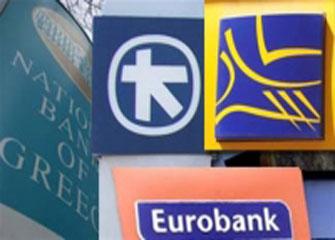By Bill Robinson, Cityam.com
When the Eurozone crisis first erupted five years ago, it was a crisis of confidence in the ability of peripheral countries (Greece, Spain, Portugal) to pay back the debt incurred in financing their swollen government deficits.
Those countries, including Greece, have since virtually eliminated their fiscal deficits and, following the re-election of Alexis Tsipras as Greek Prime Minister, Greece is likely to continue down the path of budget discipline and government reform under the third bailout.
So why did the crisis come back, and why does it now take the form of a Greek banking crisis that has not yet been resolved?
The short answer is “because Greece’s currency is the euro”.
Normally an economy in trouble is liable to experience capital flight that usually leads, sooner or later, to a collapse in the currency.
There have been many such crises in Latin America over the years. A fall in the currency performs two important roles: it stems the flight of capital and it restores competitiveness.
This solution is not available to Greece. Capital flight out of Greece – very often into other Eurozone countries – does not impact the Greek currency (the euro) in the way that capital flight from Argentina or Mexico or Brazil impacted their currencies in the past.
But Greek citizens with euro-denominated bank accounts still worry that their assets are not entirely safe, even after the third bailout. The threat of Grexit has not been banished.
They could wake up one morning to discover that the government has passed a law which turns their euro assets into New Drachma assets, the value of which promptly declines as the New Drachma depreciates against all other currencies.
Another realistic worry is that Greek citizens will suffer a “haircut” – that a percentage of their bank deposits could be confiscated in order to reduce the liabilities of the banks as part of a programme of bank rescue (there is still insufficient detail about how the €25bn recapitalisation of Greece’s banks will be conducted).
These fears are the basic reason why one important form of capital flight in Greece consists of Greek citizens withdrawing cash from their bank accounts. When the crisis first erupted in 2010, Greek bank deposits fell by a third over the next two years. A decline of a similar order has occurred this year.
It is to stop, or at least slow, this haemorrhage that capital controls have been imposed: Greek citizens were initially limited to a €60 per day rate of withdrawal of cash from their bank accounts, and the current limits are still very restrictive.
These capital controls are immensely damaging to the conduct of everyday business. Money is the oxygen that fuels any modern economy. Deprived of it, the economy will stall.
It is too soon to know for certain the impact of capital controls on Greek output, but there is a wealth of anecdotal evidence of ordinary business transactions (repairs, for example, that depend on the purchase of spare parts) that have become impossible because of capital controls.
The economic prescription for dealing with a banking crisis is well known. The central bank, which in this case means the European Central Bank, must lend without stint, to restore confidence.
But sadly, in this unique crisis, the scale of support required could be unusually large compared with any past banking crisis.
Why? Because the spectre of Grexit is difficult to exorcise. Given the choice between €1,000 kept in a Greek bank or €1,000 in euro notes, very many Greeks may go for the cash as an insurance against Grexit.
In the absence of truly massive support for Greek banks – sufficient to satisfy Greek citizens’ desire to hold euros in cash – capital controls will have to stay in place, and the damage to the Greek economy will continue. The consequences could be dire.
The Greek banks are currently facing a liquidity crisis, which will be resolved as long as the ECB lends without stint. But if the capital controls remain in place, many Greek businesses will fail. Loans to those businesses are an important part of the asset base of the Greek banking system.
As those loans go sour, the Greek banks will see their asset base shrink. The liquidity crisis will turn into an insolvency crisis for the more vulnerable banks.
Recession, leading to bank failure, leading to an even deeper recession: this was the story of the Great Depression in 1930s America. The scenario could play out in modern Greece all too easily.
The only sure way to avoid this outcome is to provide support for the Greek banks on a truly massive scale, and lift the capital controls. The ECB must be prepared to finance the desire of Greek citizens to hold their euros in cash until confidence is restored. It could be costly. But the cost of the alternative is too great to contemplate.









